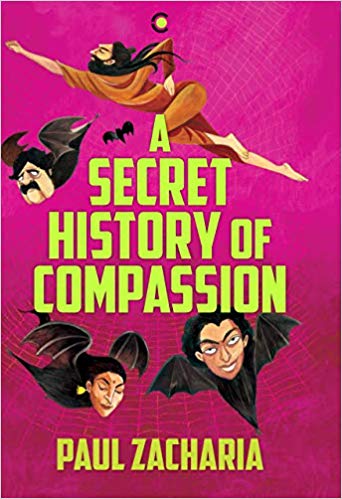Paul Zacharia is a celebrated name in Malayalam literature. His oeuvre includes more than fifty books in genres ranging from collections of short stories to novels and collections of essays to books for children. A Secret History of Compassion is his first novel in English—and what a whirlwind read this book is! Calling this novel quirky would be an understatement. There are layers in this novel that are not immediately apparent, but a closer reading may connect several events in the novel to incidents from current times.There are three main players in the story: Lord Spider, ‘renowned author of mysteries, thrillers and romances’ who has published ‘[one] hundred and thirty-one [books] in all’; Rosi, Lord Spider’s wife, ‘a freelancing philosopher’; and Jesus Lambodara ‘JL’ Pillai, a shape-shifting hangman-cum-carpenter transitioning between human, bird, and bat forms. There is a fourth important character too who does not do much, but he drives Spider into fits of obsession, adding more quirkiness to the book. He is Brother, Spider’s dog, who Spider suspects is an incarnation of Satan and Rosi’s boyfriend. If this map of characters sounds boggling, just wait for the plot.
Spider has promised the Communist Party that he would write an essay on compassion for them, but because his ‘shift from fiction to non-fiction had run into unforeseen, and what seemed to be mysterious, difficulties’, Spider was not being able to write the essay. Pillai comes flying into his house, first, in the form of a bird, and then, in the form of a bat, and helps him compose the essay. Some time during the writing, Rosi too joins her husband and Pillai in writing the essay. And witnessing this essay being written takes the reader on a roller-coaster ride of satire, social commentary, and idiosyncrasies, all of it described in a magical realism form.
Right from the first page, Zacharia starts shooting his stings of satire. The essay on compassion had been commissioned by the Communist Party ‘for the souvenir [the Communist Party] was bringing out to raise funds for a home for destitute comrades’ who ‘hadn’t been nimble enough to make it to green pastures at the right time.’ This line is sort of revelatory, making the reader wonder if that barb was aimed at the Communist Party.

